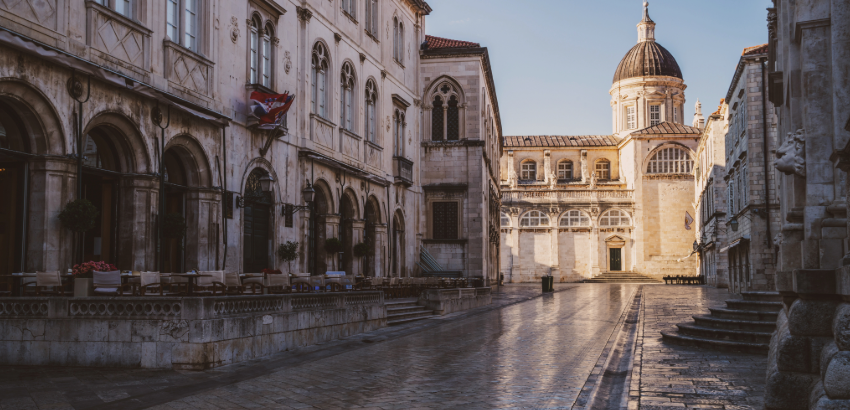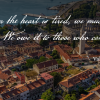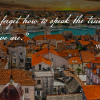
Published: December 31, 1998
View the Original Newsletter: Iskra-25.pdf
About This Issue
Iskra No. 25 closes the year with warmth, reflection, and resolve. In her editorial, Valentina Krčmar looks back at the milestones of 1998 — from the beatification of Cardinal Alojzije Stepinac to the reintegration of the Croatian Danube region — and extends heartfelt wishes for health and peace in the coming year. The issue blends news from Croatia and the diaspora, Christmas messages, cultural tributes, political updates, and personal essays that celebrate both the triumphs and trials of a nation and its people.
From the Editor
Valentina opens with a New Year’s message filled with gratitude and perspective. She writes that the greatest wealth one can wish for is health — not only for oneself but for everyone around us. Reflecting on the passing year, she highlights two defining moments in Croatia’s modern history: Pope John Paul II’s visit and the beatification of Cardinal Stepinac, alongside the long-awaited return of Eastern Slavonia to Croatia.
She acknowledges that Iskra has now entered its third year of publication and thanks its contributors, readers, and supporters for their continued faith and encouragement. Valentina admits the newsletter is not about breaking news — instead, it aims to share meaningful stories that readers won’t find elsewhere: “We bring you what might not make the headlines, but what matters to your heart.”
Her letter closes with a wish that every challenge carry its purpose and that every hardship reveal a hidden blessing.
Motrišta: Remembering the Fallen
In this heartfelt column, Drago Geoheli writes from Canada about Remembrance Day, comparing how Canadians honour their fallen with how Croatians commemorate All Souls’ Day (Dušni dan). He describes the striking difference: in Canada, ceremonies are solemn and formal, while in Croatia, cemeteries bloom with flowers and become parks of remembrance.
Geoheli’s message turns urgent when he shares the story of the Brodosplit Veterans Association, which struggled to raise just 60,000 kuna for a memorial to 19 fallen soldiers, despite the artist offering to work for free. He laments the indifference of institutions, many of which rejected requests for help, and contrasts this with the devotion shown to maintaining family graves.
He closes by condemning a disturbing graffiti found in a shipyard that read, “All living veterans should be killed and the dead burned! Long live Yugoslavia!” His essay is a passionate plea for moral awakening, reminding readers that remembrance is a sacred duty, not a formality.
A Letter from the Veterans’ Association
The Veterans Association of Brodosplit responds to Geoheli’s radio commentary with deep gratitude. They thank him for his support from afar and promise to persevere in their mission to honour their fallen comrades. The letter, dated December 17, 1998, ends with:
“Listening to your words gave us renewed strength to continue our work with even greater determination.”
News from Croatia
Prepared by Slavko Butković, this section highlights:
-
The Croatian Parliament debating corruption and privatization scandals.
-
President Franjo Tuđman’s Christmas and New Year’s message, calling 1998 a successful year marked by reintegration, the Pope’s visit, and new diplomatic achievements.
-
Dr. Miroslav Radman, renowned Croatian scientist in France, receiving the Prix Léopold Griffuel 1998 for his groundbreaking cancer research.
-
Ongoing issues surrounding refugee returns to Vukovar and Eastern Slavonia.
-
Croatia’s donation of building materials to help reconstruct homes for Bosnian Croats.
Community and Culture
The community pages feature an abundance of local events and celebrations across Toronto, Hamilton, and Mississauga. Highlights include:
-
A charity banquet in Oakville in honour of Blessed Alojzije Stepinac, benefiting the parish of Krašić.
-
The Croatian Club Karlovac’s concert featuring Plava Noć from Croatia.
-
A Lika heritage dinner hosted by the Društvo Hrvata Like to support charitable projects in the Lika-Senj region.
-
An announcement from HDZ Toronto about hosting a Croatian Film Festival every Friday in January 1999, screening titles such as Kako je započeo rat na mom otoku and Kad mrtvi pjevaju.
The newsletter’s advertisements also showcase a thriving Croatian business community — from jewelers and builders to travel agencies and credit unions — reflecting the vibrant economic life of the diaspora.
Holiday Reflections
Poet P. Brown contributes a tender piece titled “Pozdrav Majkama” (“A Greeting to Mothers”), honouring the women who make Christmas magical — the ones who bake, decorate, wrap gifts, and carry the invisible weight of holiday love and effort.
A nostalgic essay by Petar Šimunović captures the Christmas spirit on the island of Brač, where the sound of wind over the sea mingles with memories of family stories, folk songs, and the warmth of the hearth.
Health and Lifestyle
Dr. Darko Desaty continues his series with an article on cancer prevention and treatment, summarizing the latest medical advances while emphasizing healthy living and early detection. He explains how modern research seeks not only cures but ways to prevent the disease’s spread, turning it into a manageable condition.
Another feature, “Božićna Zvijezda” by Dubravka Augustin, offers a botanical guide to caring for the poinsettia, the beloved Christmas flower, and ensuring it thrives year after year.
Sports
The sports section celebrates Croatia’s ongoing success on the world stage:
-
Janica Kostelić earns recognition as the best Croatian female athlete of 1998.
-
Davor Šuker, star striker for Real Madrid, is named best Croatian male athlete.
-
The Croatian national soccer team wins the Team of the Year award.
-
Domestic sports coverage includes Split basketball victories, achievements in handball and volleyball, and the 95th anniversary of the NK Croatia Zagreb football club.
Closing Thoughts
As the 20th century nears its end, Iskra No. 25 stands as both a farewell and a renewal — honouring sacrifice, celebrating resilience, and preparing for a hopeful future. Valentina Krčmar and her team remind readers that the flame of Croatian identity burns brightest when kept alive by gratitude, unity, and remembrance.




